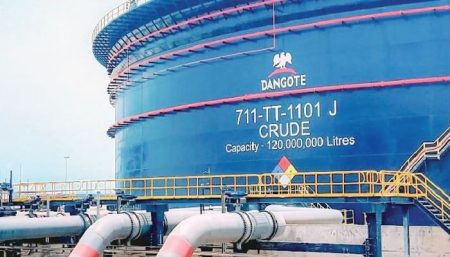Nigeria is setting ambitious targets for its oil and gas production, aiming to achieve four million barrels per day of oil and 10 billion cubic feet of gas by 2030. This goal was articulated by Olu Verheijen, the Special Adviser to the President on Energy, who emphasized that the initiatives are grounded in new fiscal incentives designed to increase investments in the sector. These incentives include a Value Added Tax waiver on gas, diesel, and related equipment, as well as tax credits for fresh investments in deepwater oil and gas production. This strategic shift reflects Nigeria’s commitment to revitalizing its oil and gas industry, which has historically struggled to remain competitive on the global stage.
President Bola Tinubu’s administration has recognized the urgent need for these reforms, particularly in light of the stagnant performance of Nigeria’s deepwater projects since the approval of the Egina project in 2013. According to Verheijen, International Oil Companies (IOCs) operating in Nigeria have redirected over $82 billion in investments to other nations perceived as more favorable. In the coming years, these companies are poised to allocate an additional $90 billion towards the development of deepwater projects globally. Therefore, Nigeria’s policy reforms aim to tap into this pool of funds, with projections suggesting that between $5 billion and $10 billion could be unlocked for investments in the near- to medium-term.
The proposed reforms are anticipated to generate substantial economic benefits for Nigeria, including job creation, increased foreign exchange earnings, and enhanced tax revenue. Verheijen highlighted that approximately 76% of Nigeria’s gas resources remain untapped, providing an enormous opportunity for the government to strengthen energy security while simultaneously fostering economic growth. By focusing on these underutilized resources, Nigeria seeks to improve its position in the energy market, leverage its natural wealth, and provide a more stable energy supply for its populace.
Industry stakeholders are expressing optimism regarding the current initiatives. Osagie Okunbor, Chairman of the Oil Producers Trade Section, praised the government’s efforts, indicating that for the first time in years, there is a noticeable positive momentum in the Nigerian oil and gas industry. He attributed this to recent Presidential Directives and an intentional engagement with the service sector, which has fostered an unprecedented level of coordination and policy coherence. The fast-tracking of reforms over the past year has ignited renewed interest from investors, suggesting a brighter future for the sector under the current leadership.
Reports indicate that progress is already being made on the ground. The Joint Taskforce Operation Delta Safe in the Niger Delta region has affirmed that daily crude oil output has risen to 1.7 million barrels per day. This upward trend in production reflects the potential efficacy of the reforms and incentives being introduced. While significant challenges remain in fully realizing Nigeria’s targets, the recent developments signal a turning point for the country’s oil and gas industry, reaffirming its significance as a cornerstone of the national economy.
In conclusion, Nigeria’s quest for increased oil and gas production is a critical endeavor aimed at restoring competitiveness and leveraging the country’s abundant natural resources. With the introduction of new fiscal incentives and a strategic focus on deepwater projects, the government is laying the groundwork for substantial investment and economic growth. As stakeholders and industry participants embrace the positive momentum generated by recent reforms, the aspiration to boost production to four million barrels per day by 2030 appears to be a realistic and achievable goal, promising to reshape the future of Nigeria’s energy landscape.














